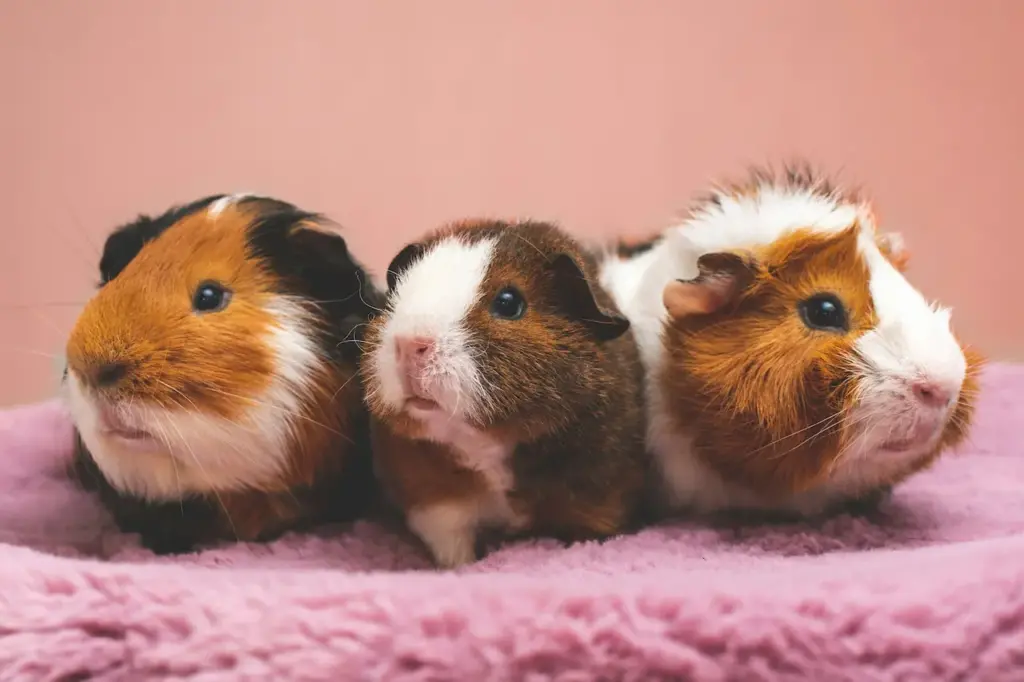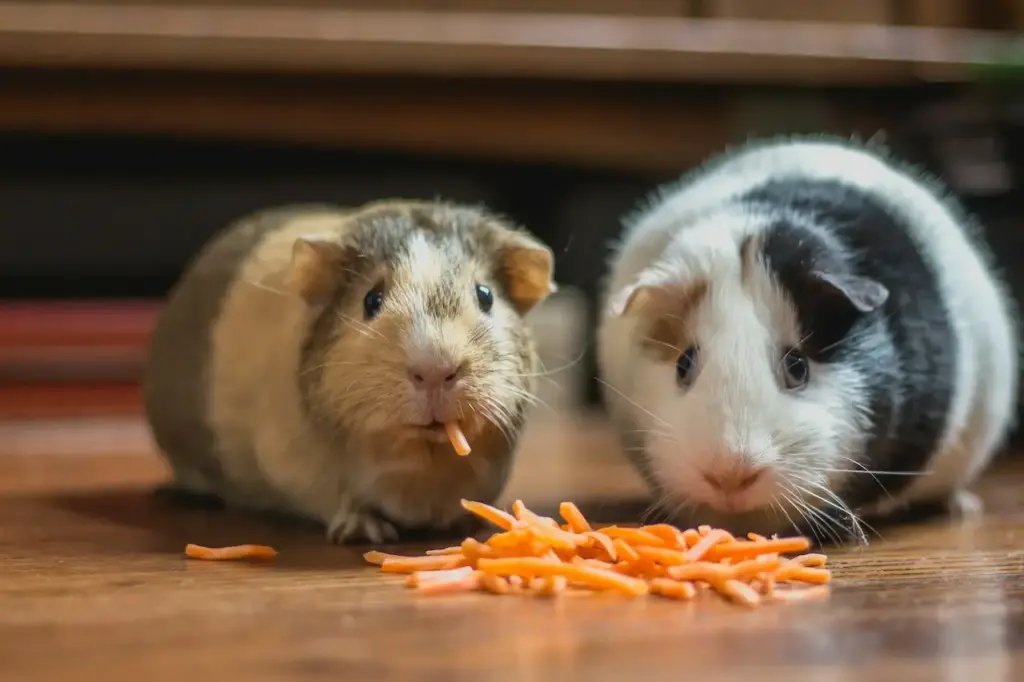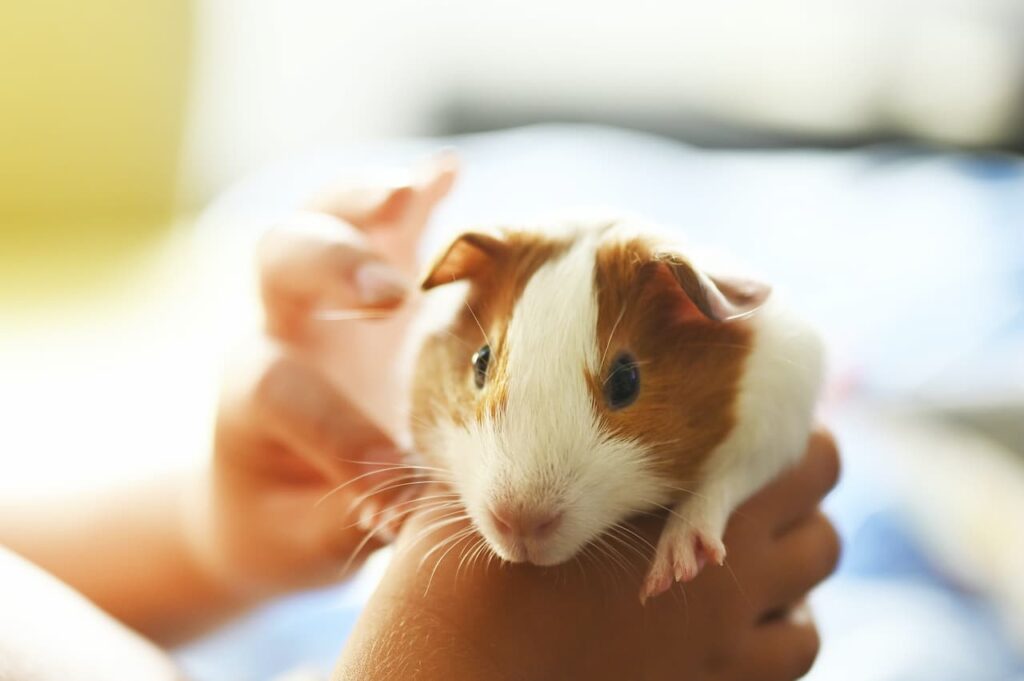We all enjoy avocados and guacamole with chips. Have you ever wondered whether we can give avocados to our guinea pigs? This blog will examine whether guinea pigs can consume avocados and the possible risks that come with it.
Guinea pigs love to eat hay and leafy greens. When it comes to giving our little friends every plant possible, we must ask ourselves if they are safe. They can’t eat all the food.
What about guinea pigs? Unfortunately for guinea pigs, avocado is toxic. The non-toxic parts of avocados are also full of fats. Avocados are not recommended for guinea pigs.
As you might know, avocados have become a hot commodity. Humans love guacamoles and avocado spreads. Can our pets also enjoy the taste of avocados? The answer is mostly no. The avocado’s inside is “safe” in general for your little piggie. Avocados are rich in fibre and are a great source of Vitamin C, Vitamin K and Vitamin A. However, they have a high fat content, which can cause digestive and intestinal issues. You should be cautious with other parts of an avocado as both the pit and outer layer can be poisonous to your guinea pig. The avocado’s high-fat content can also be harmful to your guinea pig.
Table of Contents
Toggle
You should not feed avocados to guinea pigs. The inside of an avocado is considered to be “safe”. (See I have a quotation there?) It poses several risks to guinea pigs. The avocado’s interior is high in fat, which can be a problem. Guinea pigs are sensitive digestive animals, and high-fat food can cause intestinal and digestive problems, including bloating and diarrhea.
The pit and outer layer of avocados are toxic to guinea pigs. These parts contain persin which is toxic to small animals such as guinea pigs. The outer layer or pit can cause poisoning and have serious consequences for the health of your pet.
It is not recommended to feed avocados to guinea pigs. Avocado flesh is not harmful in small amounts, but its high-fat content can cause harm to your guinea pig.
You can try other vegetables that are safe and healthy instead. peppers are a great choice because they are rich in vitamin C. This is important for guinea pigs. Cucumbers can also be hydrating for your furry friend. grass and fortified pellets.
In conclusion, avocados are not suitable for guinea pigs. Although the avocado’s inside is safe for humans to eat, it can cause digestive problems for guinea pigs. The outer layer and pit are toxic to your pets and should not be fed. Focus on providing them with a variety of healthy and safe vegetables such as green leaf lettuce and cucumbers to meet their nutritional requirements.
What makes an avocado toxic to Guinea Pigs
Avocado stems, leaves and skins contain persin. This is a toxic substance for many animals. This substance is dangerous for many domestic pets but not for humans. Unexpectedly, lab studies are trying to prove this component causes apoptosis within breast cancer cells. Miraculous!
Avocados: Safe parts
Avocado fruit can be fed to your guinea pigs. They will probably love it, and their digestive system will be soothed by its soothing effects. These are packed with vitamins and minerals that are extremely beneficial, including:
- Vitamin C
- Vitamin A
- Vitamin K
It is high in fat and is therefore not suitable for your little herbivore. An excessively high-fat diet can cause digestive and gastrointestinal issues.

The nutritional needs of our beloved guinea pigs are a top priority for conscientious pet owners. As herbivores with delicate digestive systems, guinea pigs require a diet rich in fiber, vitamins, and minerals to thrive. However, not all foods that are safe for humans are suitable for these small rodents. Among the foods that often raise questions is the creamy, nutrient-rich avocado. So, can guinea pigs eat avocado? Let’s explore the nutritional content of avocados, potential health benefits, risks associated with their consumption, and guidelines for incorporating them into a guinea pig’s diet responsibly.
Avocado, prized for its creamy texture and heart-healthy fats, is a popular fruit enjoyed by humans worldwide. Rich in monounsaturated fats, avocados provide a source of energy and essential fatty acids necessary for overall health. Additionally, avocados contain an array of vitamins and minerals, including vitamin K, vitamin E, vitamin C, potassium, and folate, making them a nutrient-dense addition to the human diet.
However, when it comes to guinea pigs, the suitability of avocados as a dietary component is subject to debate. While avocados offer several nutritional benefits, they also contain certain compounds that may pose risks to guinea pigs’ health. One such compound is persin, a fungicidal toxin found in various parts of the avocado, including the leaves, skin, and pit. Persin is harmless to humans but can be toxic to some animals, including birds, horses, and rodents, in large quantities.
The presence of persin in avocados raises concerns about its potential effects on guinea pigs. While the concentration of persin in the flesh of ripe avocados is generally considered low and unlikely to cause harm to humans, the same may not hold true for guinea pigs, which have different metabolic processes and sensitivities. Even small amounts of persin could potentially cause gastrointestinal distress or other adverse reactions in guinea pigs, making caution paramount when considering avocado as a part of their diet.
Moreover, the high fat content of avocados may not align well with the dietary requirements of guinea pigs. While guinea pigs do require some dietary fat for energy and nutrient absorption, excessive fat intake can lead to obesity and other health problems. Avocados are significantly higher in fat compared to many other fruits and vegetables commonly fed to guinea pigs, raising concerns about the potential for weight gain and related issues.
Despite these potential risks, some proponents argue that avocados can be offered to guinea pigs in moderation, provided certain precautions are taken. Advocates of feeding avocados to guinea pigs point to their nutritional value, including their high vitamin and mineral content, as potential benefits. Additionally, they suggest that guinea pigs may enjoy the taste and texture of avocados as an occasional treat.

However, it’s essential to approach the inclusion of avocados in a guinea pig’s diet with caution and careful consideration. If you choose to offer avocados to your guinea pig, it’s crucial to do so in small quantities and monitor their response closely for any signs of digestive upset or other adverse reactions. Additionally, it’s advisable to remove any skin, pit, or other parts of the avocado that may contain higher concentrations of persin, focusing solely on the ripe flesh.
Furthermore, avocados should never replace the core components of a guinea pig’s diet, such as hay, fresh vegetables, and a small amount of fortified guinea pig pellets. These foods provide essential nutrients, including fibre, vitamin C, and calcium, that are vital for maintaining optimal health and well-being in guinea pigs. Avocados should be viewed as an occasional treat rather than a staple food item for guinea pigs.
In summary, the question of whether guinea pigs can eat avocado is nuanced, with considerations regarding both potential benefits and risks. While avocados offer valuable nutrients, including healthy fats and vitamins, they also contain compounds like persin that may pose risks to guinea pigs’ health. If you choose to offer avocados to your guinea pig, it’s essential to do so in moderation and with caution, while prioritizing a balanced and varied diet that meets their specific nutritional needs. By approaching the inclusion of avocados in their diet thoughtfully and responsibly, you can ensure the health and well-being of your guinea pig for years to come.


